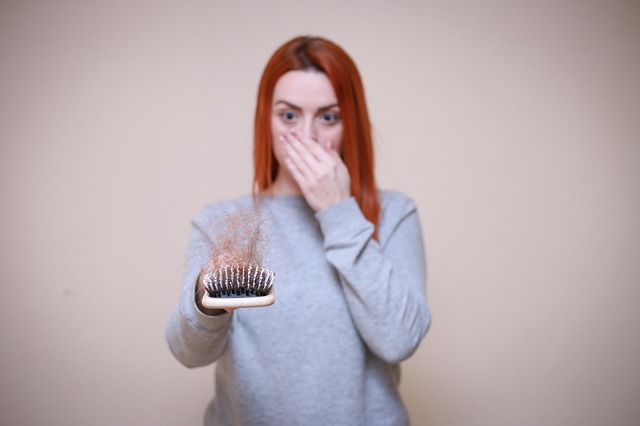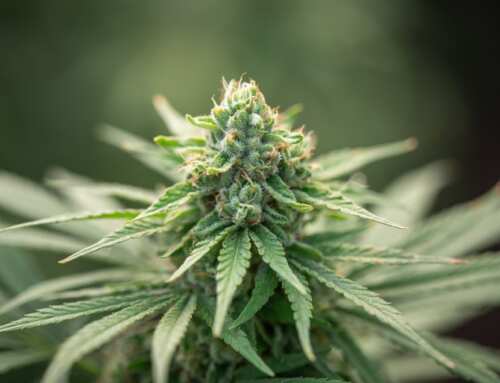Supplements line the shelves of pharmacies and health food stores, and there’s even entire websites dedicated to them (like ours!). While many of these are used for general health and wellness, or to target specific medical conditions, there are those that can help to treat even more general concerns such as hair thinning and loss. Before we get into the specific supplements you should consider adding to your daily hair care routine, let us first discuss the intricacies of poor hair health and hair loss.
A Brief Introduction to Hair Loss
Hair loss, also known as alopecia, is a state in which hair sheds rapidly. In temporary cases the hair can regrow, but some more lasting conditions can lead to hairline recession and balding.
The most common cause of hair loss in men with Androgenetic Alopecia (AGA), though it can occur in women, too. This is a result of sensitivity to the androgen hormone Di-hydrotestosterone (DHT), which is naturally produced by the body but that can trigger inflammation and irritation in those with a genetic predisposition to hair loss.
Another ‘permanent’ form of hair loss is Alopecia Areata (AA) which is an autoimmune condition in which the immune system attacks the hair follicles and leaves patchy, bald spots in its wake.
However, other causes of hair loss include stress (both physical and mental), hormonal imbalance, illness or injury, and surgery. Finally, nutritional deficiencies can also contribute. That’s where supplements and natural ingredients come in–by adding them to your hair care routine, you can increase your follicle health.
The Two Types of Supplements to Consider
While ‘supplement’ is a term that often refers to over-the-counter vitamins and nutrients, we will use it more loosely to encompass any supplemental ingredient that can prove beneficial in treating hair loss. As such, there will be two main categories we’ll cover.
DHT Blockers
As mentioned above, hair loss in men and women with AGA is caused by DHT sensitivity. One way to combat this is by blocking DHT before it can attach to the follicle, and this can be done with medications (such as finasteride), or natural ingredients.
The supplements listed below that fall into this category are easy to find in pharmacies, health food stores, or online. They are all available without a prescription or doctor’s visit, and you may already even use some in your everyday life or hair care routine.
Vitamins and Minerals
Vitamins and minerals are nutrients that play an array of roles within the body. In fact, many of them are required to support basic human life and are therefore necessary to survival.
While the vitamins and minerals covered below do each contribute significantly to overall health, they also play another part by contributing to hair growth.
7 Supplements to Incorporate to Your Hair Care Routine
With a better understanding of the term supplements as used here, let’s look closely at the different ones that contribute to healthy hair growth.
1. Saw Palmetto
Saw palmetto is perhaps one of the more well-known hair loss supplements. It can be applied topically or taken orally (in the form of a gel capsule), and its been shown particularly effective at inhibiting 5AR, which is a precursor to DHT.
One study performed in 2016 on Syrian hamsters showed that topical saw palmetto reduced pigmentation at the flank organ (a sign of anti-androgen effects) when applied alongside testosterone. While this study was performed on hamsters, the results provide some hope for people with AGA.
Foremost, the results show explicitly show that saw palmetto inhibits the activities of 5AR as opposed to blocking DHT entirely. This is great news because DHT blockers are known to have quite a few side effects, including loss of libido.
2. Green Tea
Green tea is not your usual supplement, but it’s one that’s gaining popularity among the health-conscious. That’s because green tea and its extracts (commonly found in capsules) have numerous health benefits.
Green tea is a source of epigallocatechins (EGCG). This catechin works as an antioxidant and anti-tumor agent, but it’s also been shown to inhibit the activity of 5AR. If that wasn’t enough, EGCG was proven to “blunt androgen receptor function,” which means less DHT can be taken up by the organs.
Best of all, there are many ways to get green tea into your diet. Green tea extract supplement capsules are available. You can also consume green tea in the traditional fashion, or add matcha (a powdered form of green tea) to your smoothies, juice blends, soups, and more.
3. Pumpkin Seed Oil
Pumpkin Seed Oil (PSO) is an unsung hero of hair growth, and here’s why: it’s a rich source of antioxidants, essential fatty acids, and critical nutrients and minerals. These are all necessary for healthy hair growth and maintenance. For the science lovers out there, you will be happy to know there is some research to potentially back the pumpkin seed oil claim as a hair loss treatment.
A 24-week study was performed in 2014 that consisted of 76 male patients with mild to moderate AGA. The patients were split into two groups with one group receiving a PSO-containing supplement and the other receiving a placebo. At the end of the study, the PSO supplement group had a significant increase in hair count over the baseline and over the placebo.
Keep in mind the supplement contained other components such as lycopene and gamma linolenic acid, so the study isn’t conclusive. But it’s a good step in backing up the various health benefits already associated with the oil.
4. Biotin
With the DHT blocker supplements covered, let’s take a closer look at biotin.
Biotin (sometimes referred to as vitamin B-7 or vitamin H) is a B-complex vitamin that assists in the metabolism of food. In other words, it makes it possible for our bodies to convert food to energy. This is critical as energy is required for the body’s numerous metabolic processes.
One such process involves the catabolism (i.e. the breaking down) of proteins. These proteins are then formed into new proteins such as keratin (the component that makes up your hair).
If biotin is lacking, one of the first symptoms you may experience is thinning of hair that is often accompanied by noticeable loss of hair color. Fortunately, over-the-counter biotin supplements do exist and many multivitamins even include it in their formula. You can also increase your intake of biotin-rich foods which include:
- Chicken
- Cold water fish (herring, sardines, tuna, salmon, trout, halibut)
- Egg yolk
- Nuts (almonds, pecans, walnuts, etc.)
- Organ meats, like liver or kidney
- Red meat
- Spinach
Be aware that processing food, including cooking, can reduce biotin bioavailability. When possible, it’s best to eat raw (such as nuts and vegetables) or cook as little as safety necessitates (such as with poultry and red meat).
5 & 6. Zinc and Selenium
Zinc and selenium are trace elements that are often found together in cosmetics, but did you know they play a crucial role in the human body? These elements are antioxidants that work to fight free radicals and, as a result, combat signs of aging in the skin. They also keep the cells functioning as they should, which is great news for your hair.
Most importantly, though, zinc and selenium contribute to the keratinization process which is necessary for hair growth. Keratinization is the synthesis of keratin, so no synthesis would mean no hair. You can take these vitamins together (as both tend to be found in multivitamins) or alone, or just increase your daily intake of zinc- and selenium-rich foods such as:
- Almonds
- Oysters
- Pumpkin seeds
- Red meats
- Wheat germs
Do be aware that high levels of zinc can actually contribute to hair loss. As such, you shouldn’t take zinc regularly and if you feel that an overabundance of zinc is a problem, consult your physician.
7. Iron
Iron plays one of the most important roles in the body as it contributes to the makeup of hemoglobin, a component of red blood cells that is responsible for the delivery of oxygen. Without enough iron the body struggles to produce enough hemoglobin, which reduces oxygen delivery significantly.
Oxygen is of course critical to the body’s organs, and one such organ is the hair follicle. Without proper delivery, the follicle can eventually wither and die. This results in persistent shedding and eventual baldness if left untreated.
Fortunately, this can be remedied for the vast majority of people with an increase in iron intake via diet. This includes the addition of red meats and organ meats, as well as tofu, beans, and spinach. However, iron deficiency for some can be caused by an underlying medical condition and must be treated by your doctor.
General Warnings and Precautions
Natural health supplements can be a beneficial addition to your diet and daily hair care routine, but there are some precautions you should take.
Most importantly, you should consult with your doctor prior to beginning any supplements. These supplements may interact with prescription medications or cause complications related to medical conditions, so it’s best to seek out professional advice beforehand.
Also keep in mind that moderation is key, and too much of a good thing can be bad. You’ll want to be sure not to go overboard when using any of these supplements, and be aware of any signs of allergic reaction.
Conclusion
Hair thinning and balding can be devastating, and there are many treatments on the market that exist to treat hair loss. However, some of these can have major side effects and many of them just cover up the issue without treating it directly.
This is where supplements can help. By adding natural ingredients and vitamins to your hair care routine, you can improve your overall health and wellness while also creating an environment in which strong, beautiful hair can grow. Even if you are not suffering from hair loss, it never hurts to take extra special care of what you’ve got!
Source: Hairguard.com







Leave A Comment
You must be logged in to post a comment.